One of my favorite things about audiobooks is the way they expand my reading experience. With an audiobook, I don’t just have my own interpretation of events and characters, but the narrator’s interpretation as well. The choices each narrator makes — the voices and accents they use, their pacing, their volume — changes how I think and feel about the book. So I’m always on the lookout for great narrators, and I especially appreciate it when a narrator has some connection to the book, or brings perspectives and experiences to their performance that add interesting layers. That’s the case with these 20 books, written by Indigenous authors and read by Indigenous narrators.
I’ve mostly included books read by narrators other than the author, because I wanted to highlight just how many talented Indigenous voice actors there are. But I did slip in a few memoirs read by the author, ones where the audio performance is so good that the authors deserve credit not only for their writing, but for their brilliant narration as well. I also limited myself to one audiobook per narrator, but many of these narrators have extensive catalogues, which I encourage you to explore!
I didn’t add up just how many hours these audiobooks represent, but it’s a lot — hundreds, at least. So get ready with your favorite puzzle, that long list of house chores, or a beautiful walk, because there is so much great listening to do!
Calling for a Blanket Dance by Oscar Hokeah, read by Rainy Fields and Oscar HokeahEver is a young Indigenous man with Cherokee, Kiowa, and Mexican heritage. He’s struggling to understand himself, his family, his cultural history, and his place in the world. The story unfolds through the POVs of everyone in his life — parents, lovers, friends, grandparents, neighbors. It’s a moving symphony of voices, and a beautiful story about loss and belonging. |
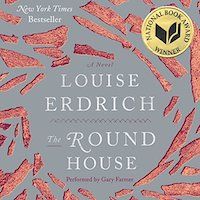
The Round House by Louise Erdrich, read by Gary FarmerErdrich’s many books are all fantastic on audio — she reads many of them herself and is a wonderful narrator. But Gary Farmer shines in this one. It’s a moving, coming-of-age tale about an Ojibwe boy living on a reservation in northern Minnesota, struggling to make sense of his life after his family’s world is shattered by a terrible crime. |
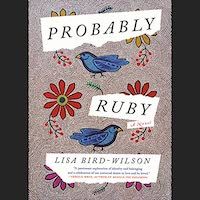
Probably Ruby by Lisa Bird-Wilson, read by Dakota Ray HebertThis is another wonderful kaleidoscopic book told from multiple POVs. Ruby is an Indigenous woman adopted by white parents as a baby, cut off from her birth family and culture. As a young woman, she longs to reconnect with them, but her journey back to herself is full of challenges. The story moves around in time, as the people who know Ruby — her birth and adoptive parents, friends, kids, lovers and ex-lovers — share the meaningful moments in their and Ruby’s life. |
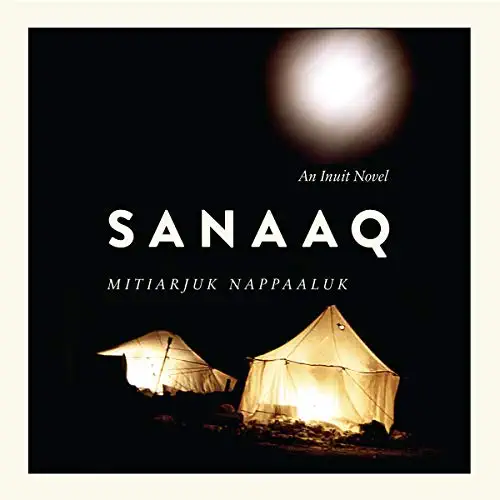
Sanaaq by Mitiarjuk Nappaaluk, translated by Bernard Saladin d’Anglure, read by Tiffany AyalikA beautiful, quiet story about the daily lives of an Inuit family in northern Quebec, this book was the first novel to be written in Inuktitut. It mostly follows a woman named Sanaaq through the ups and downs of her days: she goes seal hunting, prepares for winter, argues with her husband, tells stories. |
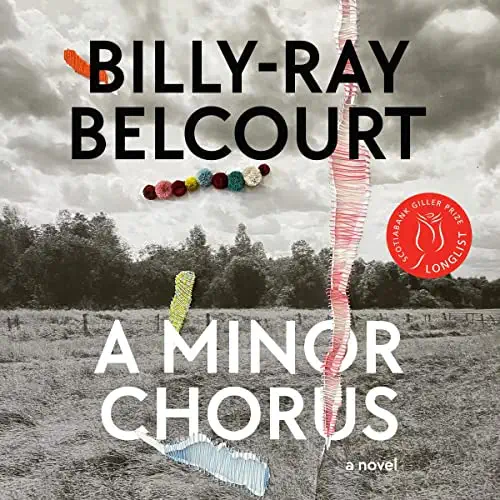
A Minor Chorus by Billy-Ray Belcourt, read by Jesse NobessThis genre-defying novel is a brilliant blend of theory, philosophy, oral history, and intimate storytelling. The unnamed narrator is a queer Cree PhD student who, fed up with the unrelenting racism of the academy, abandons his dissertation and returns home to northern Alberta to write a novel. Belcourt’s sentences shine and shimmer and pop like only a poet’s can. It’s a short book that nevertheless delves deeply into questions of lineage, legacy, and the uses of writing itself. |
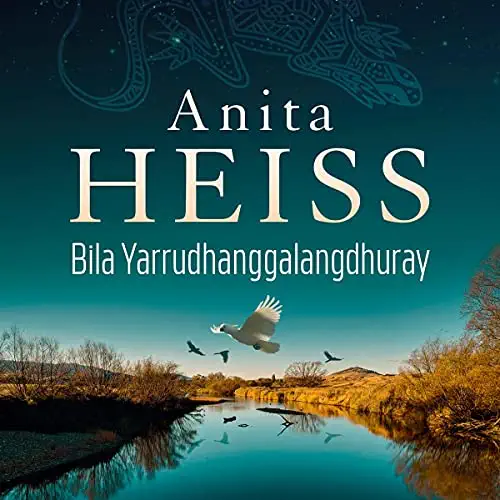
Bila Yarrudhanggalangdhuray by Anita Heiss, read by Tamala SheltonYou’re going to want to have the tissues ready while listening to this one. It’s a gorgeous story, full of moments of hope and connection and community, but it’s also heartbreaking. Set in Gundagai, Australia, in 1852, it’s about a young Aboriginal woman who’s forced to move away from her family after a flood destroys the home of the white family she’s working for. It’s a deeply painful story about the colonization of Australia, featuring one of the most specific, determined, and creative protagonists I’ve had the pleasure to meet in a long time. |
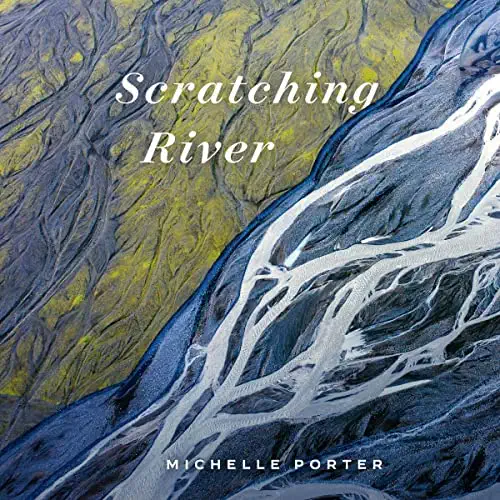
Scratching River by Michelle Porter, read by the authorThis unique nonfiction book is a blend of memoir, Métis history, and journalism. The book centers on Porter’s search for a place for her brother to call home, and her investigation of the abuse he suffered while living in an Alberta group home. Interspersed with these intimate family stories, Porter shares pieces of Métis history, eventually telling a story that, like a river, grows stronger as it flows. |
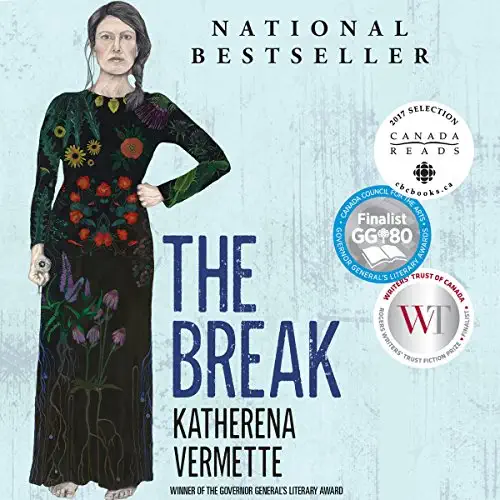
The Break by Katherena Vermette, read by Michaela WashburnThis intergenerational family saga begins with a Métis mother named Stella, who looks out her window one day and sees a possible crime taking place. From there, the narrative moves through a chorus of POVs, with everyone connected to the victim sharing their stories of what happened on and before that moment. It’s a powerful novel that illuminates the complex, interconnected lives of a group of diverse characters living in Winnipeg’s North End. |
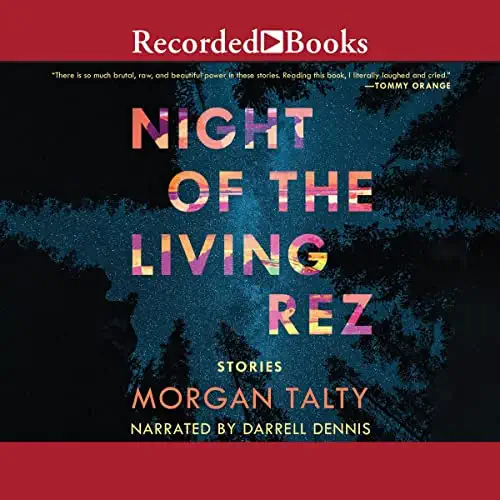
Night of the Living Rez by Morgan Talty, read by Darrell DennisThis linked story collection reads more like a novel — it has that sense of relentless momentum that propels novels forward. It’s a series of stories set on a Penobscot reservation in Maine, centering on one family and their struggles, messes, joys, heartbreaks, and triumphs. Talty is incredibly good at capturing the emotion underlying seemingly ordinary moments. His writing is vivid and sharp. |
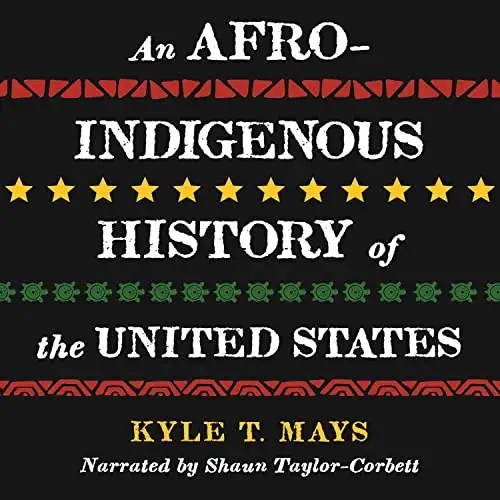
An Afro-Indigenous History of the United States by Kyle T. Mays, read by Shaun Taylor-CorbettIn this essential text about America’s past and present, Afro-Indigenous historian Kyle T. Mays explores the deeply intertwined histories of Black and Indigenous activism and resistance throughout American history. It’s a powerful account that invites listeners to imagine the possibilities inherent in Afro-Indigenous solidarity. |
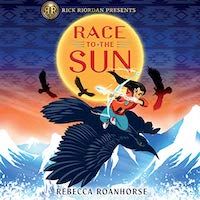
Race to the Sun by Rebecca Roanhorse, read by Kinsale HuestonThis middle grade fantasy follows the adventures of Nizhoni and her brother Mac. Nizhoni is sure her dad’s new boss is actually some kind of monster — he’s way too interested in their family’s Navajo heritage and stories — but it’s only after her dad disappears that Nizhoni and her brother realize just how much trouble they’re in. |
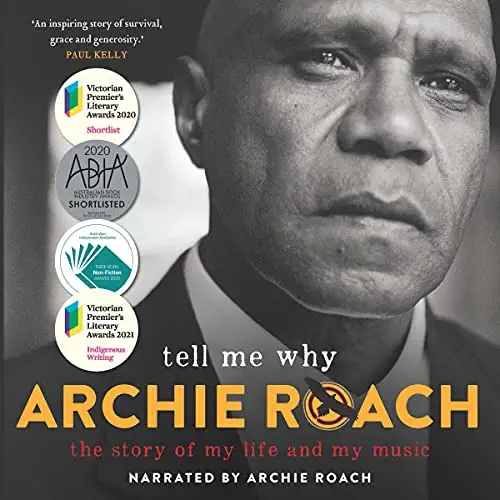
Tell Me Why by Archie Roach, read by the authorArchie Roach was one of Australia’s most beloved singer-songwriters. In this memoir, he shares the story of his life: his forced removal from his home at the age of two, the foster families he grew up with, his search to find his people and reconnect with the world that had been stolen from him, and his extraordinary musical career. |
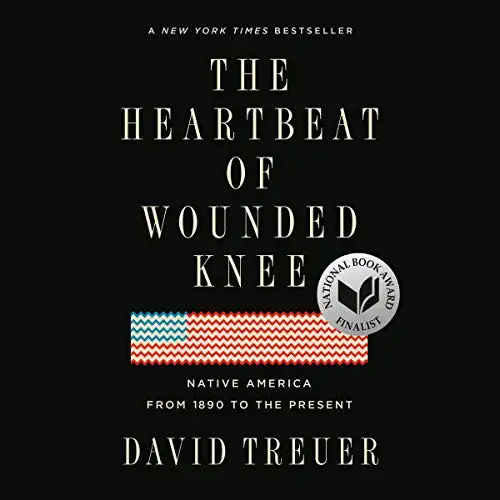
The Heartbeat of Wounded Knee by David Treuer, read by Tanis ParenteauEvery so often I encounter a nonfiction book I want to thrust into the hands (or ears) of everyone I know, and this is one. Examining Indigenous history from 1890 to the present, Treuer deftly shatters the harmful myth that Native history “ended” with the Wounded Knee massacre. He delves into the many ways that Native people have been shaping America from the beginning. He doesn’t shy away from the many atrocities the U.S. government has committed against Indigenous people, but he goes into just as much detail about thriving Indigenous art, activism, politics, and culture. |
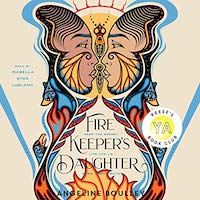
Firekeeper’s Daughter by Angeline Boulley, read by Isabella Star LaBlancThis YA novel is so many things: a coming-of-age story, a family saga, an exploration of Ojibwe culture, and a murder mystery. Daunis is a biracial teenager who’s never felt at home anywhere, not in her small hometown or the neighboring Ojibwe reservation. She’s just trying to keep her head above water when she witnesses a murder — and she’s suddenly in the midst of a criminal investigation that will change her life, and her understanding of the world, forever. |
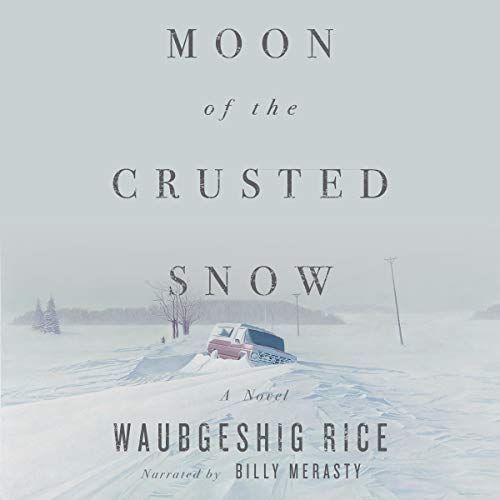
Moon of the Crusted Snow by Waubgeshig Rice, read by Billy MerastyThis quiet yet chilling post-apocalyptic novel is even more haunting when read aloud. It’s set in a small Anishinaabe community in northern Canada. Suddenly, on the edge of winter, they lose all contact with the outside world — phone, internet, power. With no way to know what’s happening, they attempt to take care of themselves as best they can, facing threats from both within and without. It’s a post-apocalyptic novel with the slowest burn you’ll ever read. |
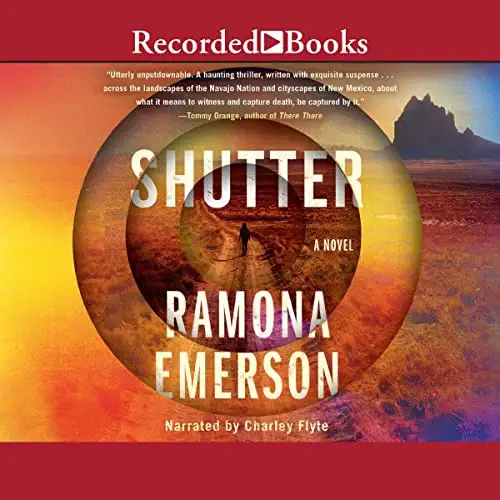
Shutter by Ramona Emerson, read by Charley FlyteThis chilling supernatural crime novel, set in New Mexico, is equal parts thriller and moving character study. Rita Todacheene is a forensic photographer who sometimes sees the ghosts of victims. She uses what they tell her to help solve crimes, often noticing small details that investigators overlook. It’s not long before her abilities get Rita in trouble, and force her to confront the ghosts of her own past. |
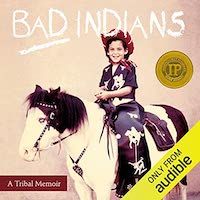
Bad Indians by Deborah A. Miranda, read by the authorIn a work of nonfiction that’s equal parts history and memoir, Deborah A. Miranda explores the Mission Period in California, retelling old stories about the state’s history, centering Indigenous peoples instead of colonizers. It’s a collection of memories, fragments, stories, poems, and essays — powerful writing that uses the past to illuminate the present. |
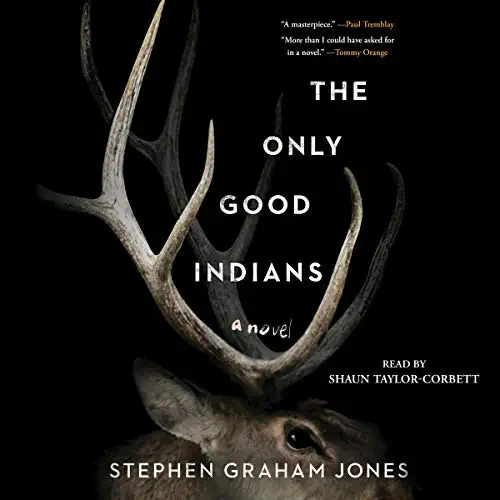
The Only Good Indians by Stephen Graham Jones, read by Cara GeeMaster of horror Stephen Graham Jones has written so many books that it’s always hard to pick just one for a list! This extremely creepy novel is about four Blackfeet men, all of whom are haunted because of a terrible event in their past. Like so much of Jones’s work, this novel is a seamless blend of chilling suspense, rich character development, and social commentary. |
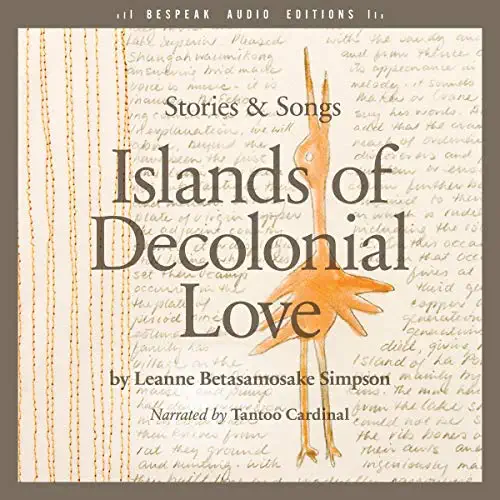
Islands of Decolonial Love by Leanne Betasamosake Simpson, read by Tantoo CardinalThese beautiful stories, songs, and poems about contemporary Indigenous life are funny and heartbreaking. In story after story, Simpson captures moments of intimacy, struggle, love, and despair. Her inventive storytelling makes this collection come alive, and it’s especially poignant on audio, as so many of the pieces feel like they’re meant to be experienced out loud. |
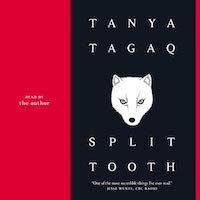
Split Tooth by Tanya Tagaq, read by the authorSet in Nunavut in the 1970s, this haunting, dazzling novel is about an Inuk woman coming into herself amidst change and turmoil. The narrative does not unfold neatly or linearly. It’s a wonderfully propulsive surprise, a story grounded in landscape and family that also explores the emotional truths found in dreams and memories. Tagaq, who is a renowned throat singer, intersperses her throat singing with the narrative; it feels like a wordless, but essential, part of the story. |
Looking for more fantastic audiobooks with Indigenous narrators? Here are six to get you started, and here are six more! And when you’re done with those, you can press play on these Native memoirs on audio.










